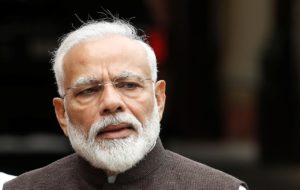Overwhelmed By The News? You’re Not Alone

Some people have stopped reading the news altogether as they find it leads to feelings of hopelessness, helplessness and a general negative feeling of human nature. It is important to remember that news headlines present a restricted range of human behaviour. The negativity bias means we pay more attention to negative news than positive news
Continuous bad news is causing people to disengage. Compassion may hold the key to staying informed and trying to fix our troubled world.
War, famine, and poverty are on the rise. Hearing about it every single day at home, online and on your phone is enough to make you want to hide.
And many have.
The rate of people actively avoiding the news at least part of the time is skyrocketing. A report by the Reuters institute found around 36 percent of people believed that interacting with the news lowered their mood.
Cost of living, dangerous diets, a climate crisis, generational divides — all day, all night, all forced into your brain. The sheer scale of media present in our pockets is causing an overload of information, intended to evoke an emotional response.
It is having a numbing effect on the way we see the world and what issues we care about.
Brain imaging research tells us there is a limit to the amount of empathy humans can deal with.
Empathy allows us to “feel” other people’s emotions and is an important social skill, but it has a downside.
In many cases, feeling others’ pain so acutely, so often can lead to “empathic distress”.
Empathic distress is when a person who witnesses other people’s suffering wants to avoid or withdraw from the situation.
A key brain imaging study showed that when people were shown footage from news or documentaries of people suffering, it triggered pain networks in their brain.
It is a very human response, performed by your empathy for pain network. The empathy for pain network appears to be a basic inbuilt mechanism. Caregivers have to recognise when their offspring are in pain and attempt to help, otherwise the species would not survive.
A range of studies have indicated that empathy for another’s pain can trigger the same networks involved in experiencing pain yourself.
Interestingly, one avenue for protecting against empathic distress is compassion. Compassion is a concerned response to another’s suffering combined with a desire to alleviate the other’s suffering.
Compassion moves beyond empathy’s feeling focus and is more action oriented, focusing on what can be done to alleviate the other’s suffering. Compassion is asking oneself “What is the most constructive thing I can do for the other?”.
A growing body of researchers are suggesting the widely used term ‘compassion fatigue’ should actually be called ‘empathic distress fatigue’.
Brain imaging research shows compassion and empathy have different neural networks. Compassion involves feelings of warmth, concern, caring and motivates prosocial actions and behaviour.
A landmark 2014 study showed that compassion reversed the negative effects of empathic distress and strengthened positive effect and brain networks linked to affiliation and reward. Compassion training may be an important technique to overcome empathic distress and reduce burnout.
Around the world, there is growing interest in compassion training for professions that are regularly exposed to the suffering of others, for example journalists, healthcare workers, teachers and law enforcement.
A shift from empathy to compassion may be useful for anyone to manage exposure to news stories where others are suffering. At the very least, compassion is a positive mind state that potentially motivates prosocial action.
Wishing to avoid exposure to the suffering of others is understandable. But in practice it is difficult to achieve.
Humans are vulnerable to sickness, injury, accidents and other forms of suffering. Avoiding thinking about the suffering of others means one may be ill equipped if presented with a real crisis requiring action.
Some people have stopped reading the news altogether as they find it leads to feelings of hopelessness, helplessness and a general negative feeling of human nature.
It is important to remember that news headlines present a restricted range of human behaviour. The negativity bias means we pay more attention to negative news than positive news.
It is easy to forget that all over the world healthcare workers are caring for the sick, teachers are educating the young and parents are looking after their children. There are positive stories that show humans’ deep evolutionary capacity for care, cooperation and compassion.
There are instances when there is nothing we can do to help the other person. Staying with empathy in this situation puts us at risk of empathy overload and getting overwhelmed by empathic distress.
Our personal distress is no help to the other person who is already suffering. It is better for our own wellbeing to accept that some of the suffering in the world is the result of complex issues which are not in our direct control. No single individual is able to fix all of the world’s problems.
Consciously seeking exposure to good news stories and reflecting on the uplifting aspects of human nature can help build a balanced perspective. We can reflect on our own experiences of compassion.
There are often myriad of small acts by others that have had a positive influence on us. Reflecting on this heightens our sense of connectedness to others. We realise that acts of kindness, no matter how small, can be significant, even if it doesn’t seem so at the time. Cooperative helping behaviour is also observed in a wide range of species including ants, bees, dolphins, elephants and monkeys.
If we find ourselves falling into empathy overload, shift to compassion which can protect us from empathic distress.
Take stock of your position and remember that the complex world we live in also contains many positive and inspiring aspects. Remember that although we don’t have control over most external events, we do have control over how we respond to them.
(Originally published under Creative Commons by 360info™. Read the original article here)





